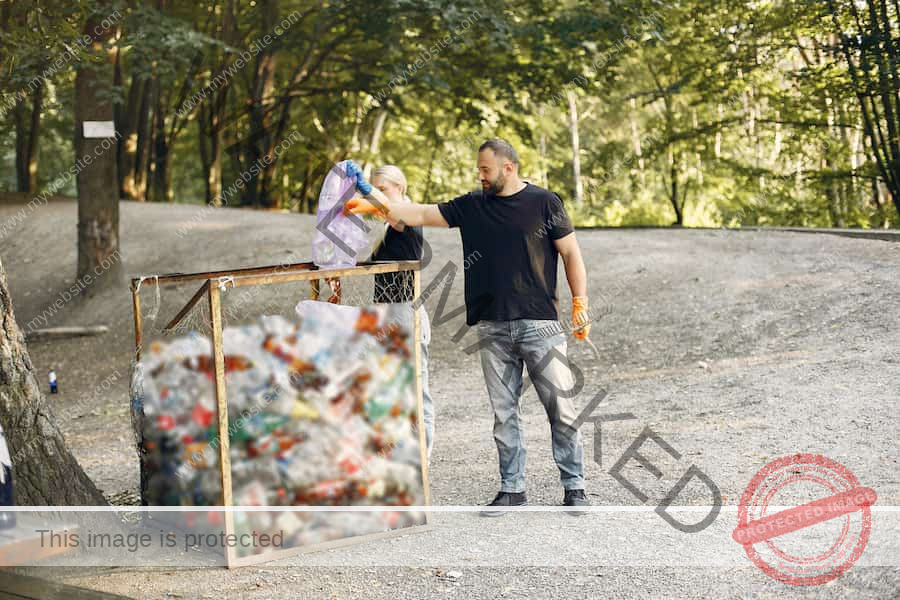If you own or rent a home, you might have questioned what garbage is actually your responsibility and which items might be left to the other party. By outlining the various garbage obligations of both landlords and tenants, this blog post helps to dispel any confusion, and it is advised that in order to make sure the waste is dealt with immediately, the Cheapest Skips Hire should be used to save money.
Responsibilities of landlords
It is imperative that you be fully compliance with all relevant laws and rules if you own something which is rented out to renters. These are your obligations about your property as well as waste.
Waste from businesses
Making the distinction among domestic and commercial trash is crucial to comprehending the waste-related obligations of both landlords and tenants. Commercial waste is waste generated by the landlord as an outcome of a building’s upkeep or by individuals working on the landlord’s behalf, whereas residential waste is pretty self-explanatory and can be generated by the residents of an asset on a regular schedule. The waste is classified as “commercial waste” because the landlord manages the premises for business use. Waste from construction, demolition, garden landscaping, or other related activities, for instance, might be produced by the landlords directly or by builders or contractors they have hired. Corporate garbage disposal is entirely the landlord’s responsibility.
When domestic garbage turns into commercial garbage
Tenants are often in charge of getting rid of their own domestic trash. Nevertheless, you should be mindful that any trash left by tenants after a tenancy ends and when they vacate the property—especially large, heavy items—becomes commercial waste as well as is your responsibility. The landlord may be subject to a significant fine as well as, in the event that the rubbish is on the street, legal action if it is illegally left there or in outdoor spaces.
Take precautions against waste crime
It’s your duty as the landlord to ensure that tenants abide by waste disposal regulations set forth by the government. Even if you did not place garbage on your own land, you may still face legal action if it has been stored there for an extended period of time. Experts states that you will not be able to defend yourself as a landlord if you’re aware that waste behaviour is unlawful but chose to ignore it.
Teach the tenants
Tenants must be taught by their landlords the value of recycling and appropriate waste separation. It ought to be simple if you have a trustworthy property manager or are in excellent touch with your tenants.
Supplying enough trash cans and disposal techniques
Even though tenants have been the ones who must regularly dispose of household waste, the landlord is required by an HMO licence to make sure that there are enough trash cans as well disposal techniques on the building and that tenants are aware of the correct disposal procedures and times.
Tenant obligations
Here are a few things to know if you’re a renter as well as wondering how the recent legislation may impact you.
Waste from the home
Tenants are in charge of dealing of their own rubbish, even though the landlord has a responsibility to supply containers as well as make sure recycling is done correctly. Information about bin collection days, whatever can and cannot be recycled, and exactly what constitutes general waste must be provided by your landlord as well as the local authority. You may speak with your landlord or get in touch with your local municipality if you have any questions.
Getting rid of large objects
If you live in a rental home, you are in charge of getting rid of any large objects, such as a refrigerator or couch. Usually, you may get in touch with the municipality and ask them to pick up items like these for free.
Organise garbage properly
Until it’s a bin day or waste collection day, tenants ought to retain their trash off the street as well as abide by the rules set forth by the municipality in question as well as landlord instructions. You have to make sure that rubbish is kept off the street in a secure location. If it is a bin day for pickup or you have made arrangements for the things to be scooped up, you are permitted to leave them on the street. Whenever it comes to appropriately storing rubbish, constantly heed the advise of your landlord as well as the regulations set forth by the local council.
If you own or rent a home, you might have questioned what garbage is actually your responsibility and which items might be left to the other party. By outlining the various garbage obligations of both landlords and tenants, this blog post helps to dispel any confusion, and it is advised that in order to make sure the waste is dealt with immediately, the Cheapest Skips Hire should be used to save money.
Responsibilities of landlords
It is imperative that you be fully compliance with all relevant laws and rules if you own something which is rented out to renters. These are your obligations about your property as well as waste.
Waste from businesses
Making the distinction among domestic and commercial trash is crucial to comprehending the waste-related obligations of both landlords and tenants. Commercial waste is waste generated by the landlord as an outcome of a building’s upkeep or by individuals working on the landlord’s behalf, whereas residential waste is pretty self-explanatory and can be generated by the residents of an asset on a regular schedule. The waste is classified as “commercial waste” because the landlord manages the premises for business use. Waste from construction, demolition, garden landscaping, or other related activities, for instance, might be produced by the landlords directly or by builders or contractors they have hired. Corporate garbage disposal is entirely the landlord’s responsibility.
When domestic garbage turns into commercial garbage
Tenants are often in charge of getting rid of their own domestic trash. Nevertheless, you should be mindful that any trash left by tenants after a tenancy ends and when they vacate the property—especially large, heavy items—becomes commercial waste as well as is your responsibility. The landlord may be subject to a significant fine as well as, in the event that the rubbish is on the street, legal action if it is illegally left there or in outdoor spaces.
Take precautions against waste crime.
It’s your duty as the landlord to ensure that tenants abide by waste management regulations set forth by the government. Even if you did not place garbage on your own land, you may still face legal action if it has been stored there for an extended period of time. Experts states that you will not be able to defend yourself as a landlord if you’re aware that waste behaviour is unlawful but chose to ignore it.
Teach the tenants
Tenants must be taught by their landlords the value of recycling and appropriate waste separation. It ought to be simple if you have a trustworthy property manager or are in excellent touch with your tenants.
Supplying enough trash cans and disposal techniques
Even though tenants have been the ones who must regularly dispose of household waste, the landlord is required by an HMO licence to make sure that there are enough trash cans as well disposal techniques on the building and that tenants are aware of the correct disposal procedures and times.
Tenant obligations
Here are a few things to know if you’re a renter as well as wondering how the recent legislation may impact you.
Waste from the home
Tenants are in charge of dealing of their own rubbish, even though the landlord has a responsibility to supply containers as well as make sure recycling is done correctly. Information about bin collection days, whatever can and cannot be recycled, and exactly what constitutes general waste must be provided by your landlord as well as the local authority. You may speak with your landlord or get in touch with your local municipality if you have any questions.
Getting rid of large objects
If you live in a rental home, you are in charge of getting rid of any large objects, such as a refrigerator or couch. Usually, you may get in touch with the municipality and ask them to pick up items like these for free.
Organise garbage properly.
Until it’s a bin day or waste collection day, tenants ought to retain their trash off the street as well as abide by the rules set forth by the municipality in question as well as landlord instructions. You have to make sure that rubbish is kept off the street in a secure location. If it is a bin day for pickup or you have made arrangements for the things to be scooped up, you are permitted to leave them on the street. Whenever it comes to appropriately storing rubbish, constantly heed the advise of your landlord as well as the regulations set forth by the local council.
Conclusion
Both landlords and tenants are required to comply with the new waste disposal and recycling regulations. Landlords are required to supply bins in HMOs, handle business garbage correctly, as well as inform tenants of their obligations. Tenants are responsible for handling all aspects of domestic garbage management, particularly disposal and safely storage. You can contact a staff member below if you require any more assistance in adhering to waste management guidelines. We assist make trash management easy and effective and maintain our landlords’ compliance.
Both landlords and tenants are required to comply with the new waste disposal and recycling regulations. Landlords are required to supply bins in HMOs, handle business garbage correctly, as well as inform tenants of their obligations. Tenants are responsible for handling all aspects of domestic garbage management, particularly disposal and safely storage. You can contact a staff member below if you require any more assistance in adhering to waste management guidelines. We assist make trash management easy and effective and maintain our landlords’ compliance.
Visit Manhwa for more informative blogs

